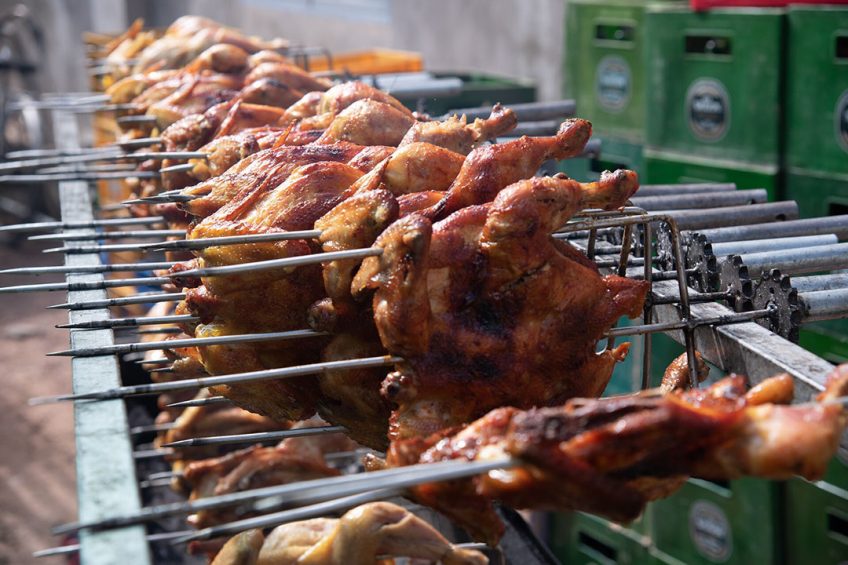A healthy demand for poultry meat and eggs in Turkey

In 2020, chicken meat production is expected to grow 2.8% to 2.2 million metric tonnes and is expected to increase a further 5% in 2021.
10 MMT of chicken and turkey feed
In 2019, 10 million metric tonnes (MMT) of poultry feed was used in Turkey to produce 2.13 MMT of chicken meat and 59,000 MT of turkey meat. The main inputs for feed are corn and soy. In 2019, 37.4% of corn and 94.6% of soy used for poultry production were imported. Corn imports increased 69% over 2018 and half of the total corn imports in 2019 were from Ukraine. Russia was the biggest corn exporter to Turkey in 2018. Turkey imports soybeans mostly from Brazil and Ukraine. Turkish importers will no longer import US soy because newer biotech methods in the US have not been approved in Turkey. Turkey’s restrictive biosafety law limits imports of genetically engineered feed and puts financial responsibility and criminal and civil liability on importers.
 Futures market
Futures market
Overview of futures prices for: corn, wheat and soybean
Consumption exceeds 21kg poultry per person
In 2019, chicken meat consumption per capita reached 1.73 MMT, or 21.3 kg per capita. This will increase marginally to 1.74 MMT in 2020 and is estimated to be 1.8 MMT in 2021. During Covid-19 measures the only product which has not seen price increases is poultry meat, despite the high input costs. According to Turkish poultry producers, wholesale markets were the most affected sector during the 13-week lockdown period, and in-home consumption increased. However, picnics were restricted, and hotels were closed, negatively affecting total consumption, especially of chicken breast meat which is widely used in fast-food restaurants. Despite these factors, producers believe that there would be no significant change in total overall domestic poultry consumption in Turkey for 2020.
 Covid-19 Up-date
Covid-19 Up-date
What impact is the pandemic having on the global poultry sector and how are they dealing with it.
Iraq the biggest export market for Turkish chicken meat
In 2020, chicken meat exports are estimated at 456,607 MT, a 12% increase from the 407,685 MT (US$ 540 million) exported in 2019. In 2021, chicken meat exports are expected to increase 10% compared to 2020. Iraq is the biggest export market for Turkey, with other markets being Hong Kong, Libya, the Congo, and Angola. In Turkey, the main problems affecting chicken meat exports are turmoil in neighbouring countries, on-going economic crises in Middle Eastern countries, and logistics issues with Syria and Iraq. Unforeseen decisions on tariffs by the Iraqi government have especially negatively affected the potential of Turkish poultry exports.
 Global poultry industry case studies
Global poultry industry case studies
Taking a deeper look into poultry production worldwide – for more case studies click here
Turkey’s poultry industry is self-sufficient
There are no imports of poultry meat to Turkey because the industry is self-sufficient. Additionally, there is a high custom tariff rate of 65% to discourage poultry meat imports and protect the domestic industry. Turkey only imports breeding materials (hatching eggs and day-old chicks) from mainly the UK and Canada to keep stable animal stocks and yield. Turkey imports day-old chicks to improve its laying hen stock and imports hatching eggs for its broiler population.
2 billion eggs produced
In 2020, egg production is estimated to reach 2 billion units, which is much the same as the 1.98 billion units in 2019. The Turkish egg sector is also struggling with high feed input prices, as well as export problems with Iraq, their main market. At the beginning of May 2019, the Iraqi government stopped all egg imports from Turkey to protect domestic production. Turkey exports one-third of its total domestic egg production to foreign markets, and 80% of total egg exports were sent to Iraq. After the Iraq ban for Turkish eggs, the Turkish egg exporters started to export eggs mostly to Syria and Kuwait. Eggs that could no longer be exported to Iraq were released into the domestic market and, as a result of oversupply, egg prices decreased sharply.
The information in this article is extracted from a USDA GAINS report prepared by Sinem Duyum.













